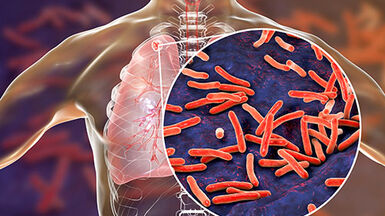Santé publique France, cellule régionale Paca et Corse (Marseille)
Contact person
Description of the institute
Santé Publique France, the French national public health agency is a governmental institution reporting to the Ministry of Health. Created in 2016, Santé Publique France brings together the French Institute for Public Health Surveillance (InVS), the National Institute for Prevention and Health Education, and the Health Emergency Preparedness and Response Agency. Santé Publique France has the following mission:
- to coordinate and implement public health surveillance
- to study the determinants of changes of trends of diseases
- to alert national public health authorities on potential threats to health
- to assist public health authorities in disease control, prevention and health promotion and education
- to contribute to the response to health alerts and crises.
The French territory comprises 13 administrative regions. The regional offices represent Santé Publique France at the regional level and act on behalf of the national agency.
Training site
The Paca-Corse regional office oversees the region of Provence-Alpes-Côte d’Azur and Corsica, both located in the South-East of France. Paca and Corsica represent more than 5 million people, 8% of the French population, and receive about 20 million tourists annually. The regional office is located in Marseille and has a satellite office in Ajaccio, Corsica, and acts to coordinate public health surveillance, research and investigations between the regional and national level of Santé publique France. The regional office is housed within the regional health authority of Provence-Alpes-Côte d’Azur (ARS PACA) and Corsica (ARS Corse). The team provides methodological and technical expertise to decentralised health authorities at the regional and district level, and coordinates regional health surveillance. The team is composed of 10 permanent staff members, and covers the following fields:
- Methodological and technical assistance to the ARS in outbreak investigations and in case of unexpected health events
- Coordination of national and regional surveillance systems, at the regional level, including analysis of mortality, morbidity and environmental data, interpretation and information targeted at decision-makers — e.g. of national systems: nonspecific surveillance system, surveillance of heat-related illnesses and of work-related health problems, strengthening of regional STI surveillance; e.g. of region-specific surveillance systems: Chikungunya, Dengue and West Nile viruses, etc.
- Development of epidemiological studies at local, district or regional level
- Organisation of, and contribution to training sessions in epidemiology and biostatistics
- Evaluation of surveillance systems
- Evaluation of health promotion projects at the regional level.
Training opportunities
The training site offers many opportunities in the field of epidemiology applied to infectious diseases but also in environmental health. This includes outbreak investigation at a local or regional level, analysis of surveillance data, evaluation of a surveillance system, protocol design and applied research (planned studies). Writing of scientific reports and articles is expected. There are several teaching opportunities, both at the regional and national level. Fellows usually contribute to the three week French field epidemiology course (IDEA) directed at public health professionals in France.
Recent examples of work undertaken by EPIET trainees (EU and MS-track) include:
- investigation of outbreaks of foodborne and waterborne disease, schistosomiasis, chikungunya, dengue and West-Nile viruses
- evaluation of the human seasonal surveillance system of West Nile virus infections
- design, conduct and analysis of a knowledge, attitude and practices study towards urogenital schistosomiasis among general practitioners in Corsica
- estimation of measles vaccination coverage at the university
- estimation of temporal evolution of mandatory childhood vaccination coverage in the region
- time series analysis of the number of HIV infections reported in France
- writing of a protocol for evaluation of the use of motivational interviewing in two maternities to promote vaccination uptake in the Paca region
Training supervision
General supervision is provided by Lauriane Ramalli, senior epidemiologist at the regional unit since 2014 and former EPIET fellow cohort 2016. Supervision of specific projects will be provided by senior epidemiologists in the team.
Language requirements
French and English.
Daily work onsite is in French (meetings, outbreak investigations, etc) therefore proficiency in French is required (minimum B2 level).
Training history
Number of EPIET fellows trained at institute: Five at the regional office
Number of Profet (French FETP program) fellows trained at institute: Four at the regional office
Number of EPIET alumni working at institute: One at the regional office and thirteen overall at the institute (national level and other regions)




